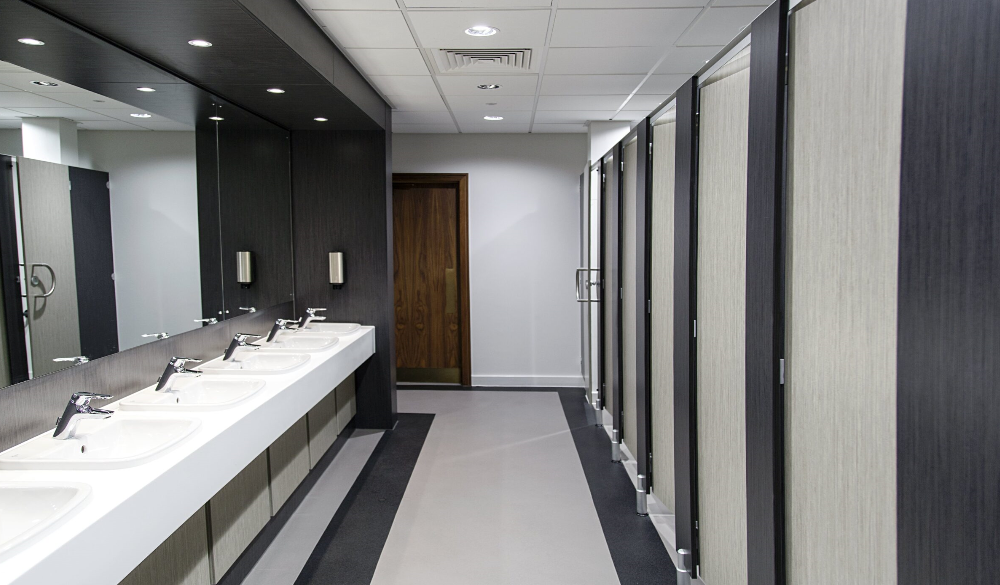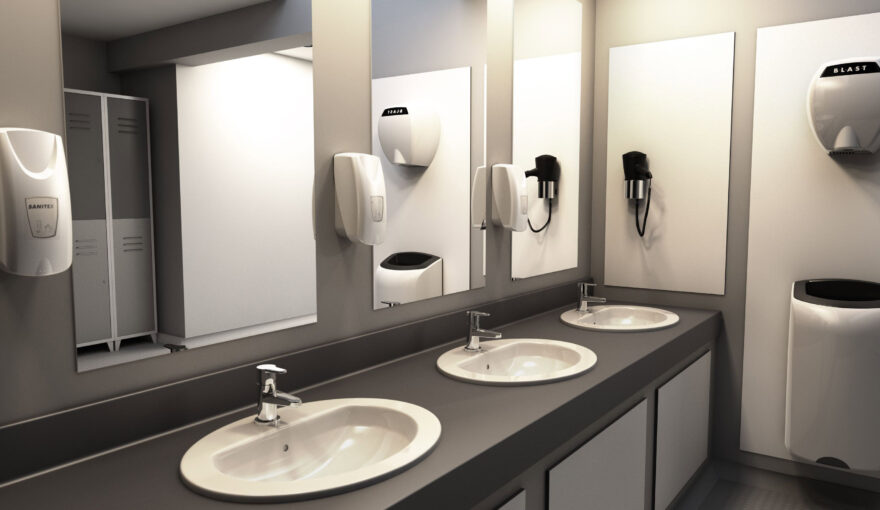Maintaining a clean and hygienic workspace is crucial for the well-being and productivity of all employees within a business.

However, various hygiene issues can arise in busy workplaces, which can affect the overall atmosphere and safety, and damage the reliability of the premises as a safe space to work. Not addressing these issues can lead to health concerns and increase sickness-related absences.
To minimise the risk an unhygienic workplace can pose, today we’re addressing some common workplace hygiene issues and providing practical solutions to address them. If you’re a business owner, we advise you to implement these measures, so your clients and employees have a healthier and more pleasant work environment.
Poor hand hygiene
One of the most prevalent hygiene issues in the workplace is poor hand hygiene and the frequently missed cleaning checks that are made on vital touchpoints. Employees who fail to wash their hands properly, or at all, inadvertently spread harmful bacteria and viruses on everything they touch. This includes communal phones, door handles, and kitchen surfaces.
To tackle this issue, employers should encourage frequent handwashing and provide the correct bathroom appliances to ensure that this is maintained. Mounted soap dispensers are the best to ensure that cross-contamination is limited – motion-sensor dispensers are also incredibly useful in this regard.
Depending on the type of premises, installing accessible hand sanitisers throughout the workplace would be beneficial, especially in busy corporate environments where handwashing is not always convenient.
Unsanitary restrooms
Dirty and unhygienic restrooms are a significant concern in many workplaces. These communal spaces are one of the main areas where transmittable bacteria through air particles and touch-points can cause health issues.
To maintain clean restrooms, regular cleaning schedules should be drawn up and thoroughly implemented. A key task on this schedule should be to ensure that restrooms are well-stocked with essentials like liquid soap, operational hand dryers or paper dispensers, and toilet paper.
Adequate ventilation should be provided in all bathrooms that do not have windows or other means of receiving airflow. This means implementing vents and air purifiers is crucial to filtering stagnant, bacterial air and delivering fresh and uncontaminated air.
Regular input from a professional hygiene service team can help deliver a high level of cleanliness in restrooms and ensure that stock is maintained for bathroom essentials and additional appliance upkeep is maintained. We have discussed the need for bathroom upkeep in a previous blog.

Contaminated communal spaces
Workplace hygiene can be unreliable in shared spaces like kitchens, break rooms, and common areas where employees gather since they are not singularly occupied or managed. Due to this, these areas can become breeding grounds for bacteria and viruses.
Employers should establish clear guidelines for cleaning these spaces regularly, including sanitising surfaces, cleaning appliances, and ensuring proper food storage and disposal. Of course, employees should also be encouraged to clean up after themselves, maintain the space, and dispose of waste correctly.
Cleaning supplies should be stored safely within these areas for staff use but should remain accessible for everyone to ensure that regular spot cleaning occurs throughout the day.
Inadequate indoor air quality
Poor indoor air quality can lead to various health issues, including allergies, respiratory problems, and decreased productivity. During the summer, this can increase due to workplace air conditioning units which, if not properly maintained, can disperse stagnant air throughout an area.
To improve air quality, employers should ensure proper ventilation systems are in place and regularly serviced. If applicable, windows should be opened to allow natural air to enter the space as this has proven benefits, which include better productivity and decreased ‘office sickness’.
Filters for air purifying units should be cleaned or replaced regularly to prevent the buildup of dust and allergens. Investing in modern HVAC systems is also a positive way to ensure that your workplace hygiene is up to standard for supplying the correct air quality.
No input from a hygiene solution provider
Maintaining a hygienic workplace is crucial for any employer, and, as such, it is essential to get the right support from experts in the field of hygiene services.
NWR Hygiene prioritises all the above-mentioned points, providing services and appliances for all areas of business and any level of issue. We are a North East recognised hygiene solution provider and have expertise in the field for more than 15 years. Our one-stop hygiene service and ongoing maintenance can solve all your workplace issues, from air care to water management, and dust control mats to discrete waste management.
By prioritising your workplace hygiene, your business can promote the well-being of its employees, reduce the spread of illnesses, and foster a positive and productive atmosphere.
For a hygiene team dedicated to the upkeep of your business premises, get in touch now!

